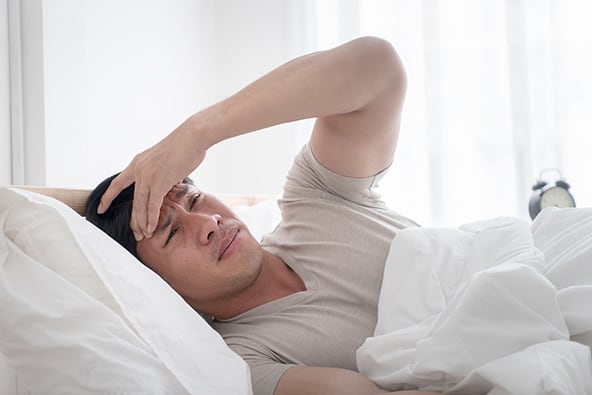
Contents
Sleep apnea may create a lot of difficulties in your daily life. If you suffer from this condition, it can be a challenge to live your life which causes you to feel tired and slow in the morning. In addition, you have to remain awake throughout the day. You may also experience sleep Apnea causes you to stay awake in the night, disrupting your sleep each time. You’re not sleeping enough when you are constantly awake during the night because of an insomnia issue.
Most people aren’t aware of the negative effects sleep apnea has on their physical and mental health. The brain is affected by sleep in a variety of ways. It causes irritation, makes your brain difficult to work, and can wear you out. Cognitive function is affected by these substances.
Anyone suffering from mental health issues because of insomnia should see a doctor whenever it is feasible. A treatment plan for the mental issues that are caused by sleep apnea could be beneficial.
A Synopsis of Sleep Apnea
Sleep Apnea is a condition that causes breathing problems throughout the night. Through the night, radio channels often stop working. The tongue is prone to slide towards the back of the throat while asleep. This is why it can keep the brain awake or trigger a mild type of sleep.
Sleep apnea sufferers may struggle to fall asleep due to their airways closing at night, but they do so intermittently. Anyone who is experiencing insomnia-related sleep disturbances awakes exhausted. Sleep apnea sufferers wake several times throughout the night because of insufficient breathing.
As this sleep-related ailment is a serious risk to affect the mental health of people it is imperative to seek treatment immediately. Modawake 200 Mg Tablet helps you get a good night’s sleep at night and can help keep you awake throughout the day.
Sleep apnea may be harmful
The quality of sleep can be impacted by sleep apnea. It can interfere with your sleep if you do not fall asleep. Depression, anxiety and stress levels increase when people aren’t getting enough sleep.
The symptoms of insomnia and depression can be caused by a reduction in serotonin, a neurotransmitter that is essential for sleep. Numerous studies have shown the treatment of sleep disorders by selective serotonin-reuptake inhibitors can be successful.
One of the most common signs that sleep deficiency can cause sexual dysfunction. Sexual issues can be greatly affected by the quality of your sleep. Sleep can impact psychological and sexual well-being. In addition, this medical issue affects fertility negatively.
The Key Contributing Elements to Sleep Apnea
The birth of a baby early can increase the risk of developing sleep apnea. Children born prematurely tend to suffer from sleep problems.
Smokers and those who drink alcohol regularly have a higher chance of having sleep issues. If alcohol is consumed in the evening, the muscles around the airways can relax. Smoking can cause irritation to the airways, which reduces the flow of air.
Sleep apnea can be more likely if physical activity is prolonged. Obesity is the result of inactivity, which may disrupt sleep. Individuals who don’t exercise or exercise regularly are more prone to developing this sleep disorder.
The impact of sleep apnea and its effects on mental health
It is more likely that you develop sleep apnea if you have a history of medical problems. The risk of stroke, heart disease and cardiovascular diseases are all caused through sleep lack. The effects of sleep on the brain are not often considered. The effects of sleep on mental well-being are closely linked as evidenced by numerous studies.
Anxiety, a frequent mental health problem, sleep apnea, and anxiety are both linked. A rise in suicidal ideas for people who suffer from sleep problems is among the primary factors to be concerned about. Sleep deprivation increases the likelihood of developing anxiety, depression and extreme psychological distress.
People with sleep apnea are more prone to mental health issues. This type of personality tends to experience depression, panic attacks and bipolar disorder, schizophrenia and cognitive enhancement drugs. People who suffer from insomnia are anxious.